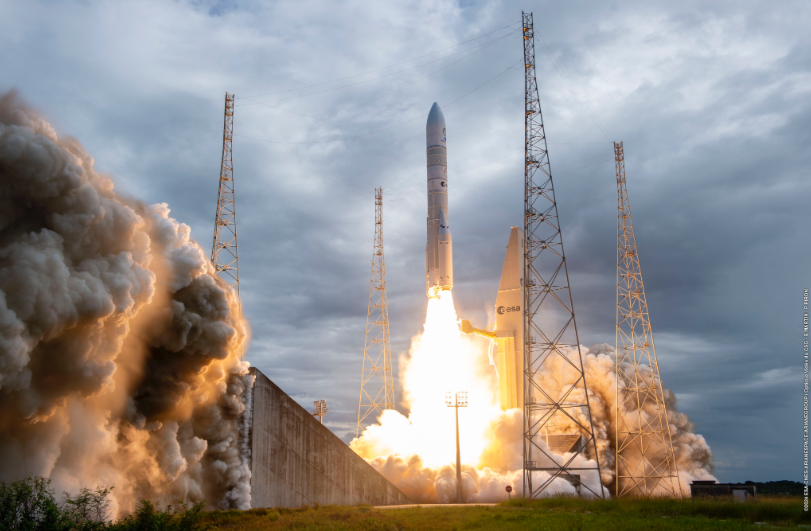The European Space Agency and Arianespace's next-gen rocket, Ariane 6, did not see a successful mission as it failed to raise its altitude, affecting both the upper and second-stage machines. Only three of its five payloads were successfully deployed by the rocket, and this specific launch failed to bring back the second stage, which is still stuck in orbit.
Ariane 6 was supposed to be the successor to the iconic Ariane 5 rocket, which officially retired around a year ago, leaving its future to the next-gen flyer.
Ariane 6 Launch Failed Mid-Mission, Two Payloads Not Deployed
After a successful launch that propelled the Ariane 6 rocket to the skies, the ESA posted an update regarding the mission's 'unexpected result' towards the end of the mission. This unexpected result was a failure to raise the altitude for the upper stage of the rocket mid-mission, centering on the Auxiliary Propulsion Unit (APU), which did not reignite its third time, according to SpacePolicyOnline.

It could deploy three of the payloads it carried but failed to do so for the two remaining ones, re-entry capsules.
Because of this, the rocket was unable to perform its deorbit burn, which would have led to its landing in the Pacific Ocean. The second stage is now hanging about in orbit.
Ariane 6: Europe's Next-Gen Rocket Faces Issues
The issues faced by Europe's next-gen rocket were regarded to be towards the end of its mission only and did not affect its capabilities to launch towards the skies and understand its microgravity phase. That being said, Arianespace CEO Stephane Israel claimed that the Ariane 6 rocket is still on track for its second launch in 2024, with this issue not affecting its future missions.
Arianespace's Ariane Rockets and the ESA
The ESA's hope for the future of its missions relied heavily on Arianespace's next-generation rocket, the Ariane 6, with the machine going into production almost a decade ago. The EU's countries, except Germany, have agreed to develop the new rocket for its upcoming missions, as opposed to Germany's proposition to upgrade the long-used Ariane 5.
In July 2023, the Ariane 5 rocket launched its historic final flight, retiring after its 117th mission, delivering satellites to space for the French and German governments. The next-gen Ariane 6 was already awaiting its first flight and mission back then, but due to massive delays, it was pushed until this year to make its space debut.
Originally, Ariane 6 was slated for a 2020 launch but was postponed due to the COVID-19 pandemic, and it was rescheduled to 2022, but this, too, faced massive delays from the company. Its debut mission took place yesterday, marking a milestone for the ESA, but it faced problems towards the end of its mission, which it considered a success.
Related Article : Double Asteroid to Make Rare Close Flyby of Earth This Week, Says ESA





